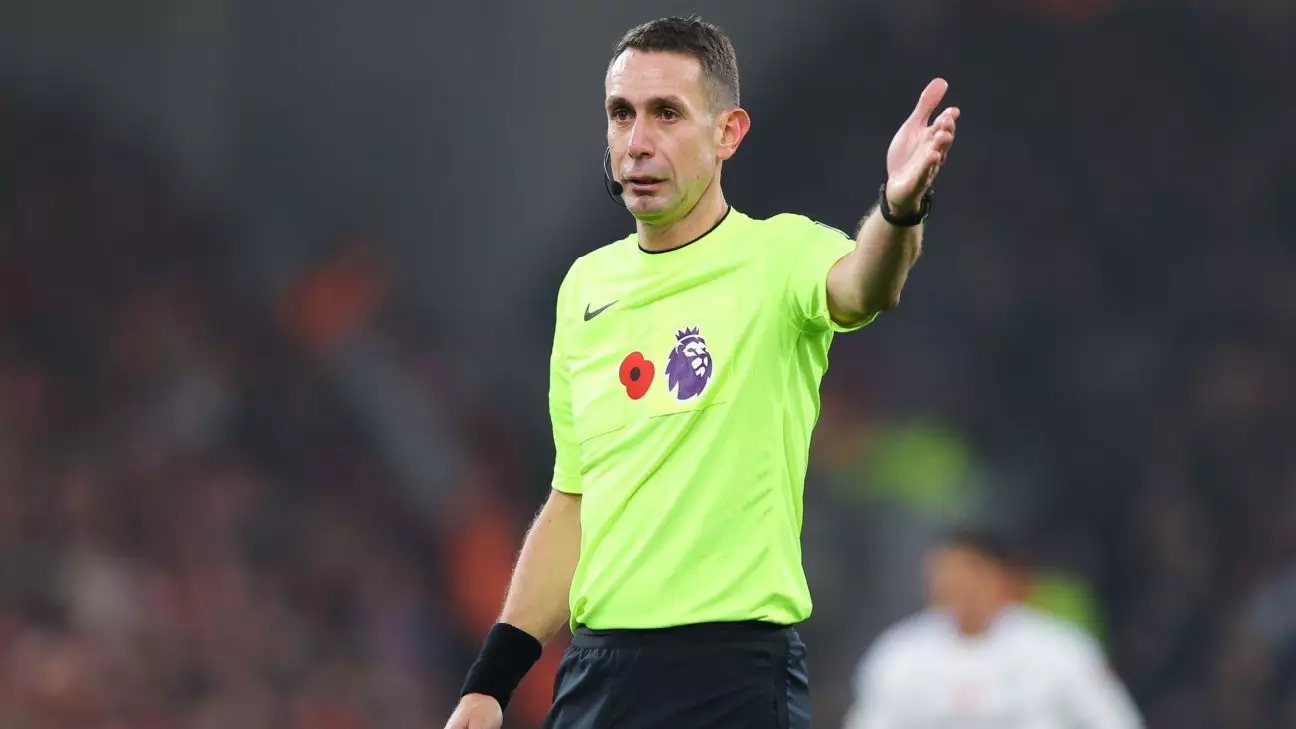The recent dismissal of Premier League referee David Coote has sent shockwaves through the football community, raising critical questions about professionalism and the ethical standards expected of sports officials. Announced by the Professional Game Match Officials Limited (PGMOL), Coote’s termination followed a thorough investigation into his conduct, deemed a “serious breach” of his employment contract. The fallout can be traced back to a leaked video showcasing Coote in a profane tirade against Liverpool and its former manager, Jürgen Klopp, signaling a disconcerting lapse in the decorum expected from referees.
Adding to the gravity of the situation is a separate investigation launched by UEFA, triggered by another video where Coote allegedly appeared to be indulging in illicit drug use while assigned to Euro 2024 duties. The convergence of these incidents casts a long shadow over his career and the credibility of officiating in major football leagues.
PGMOL’s statement highlighted the untenable nature of Coote’s position, noting that supporting his welfare remained a priority even in light of the termination. This duality presents a dissonance in the narrative; while the organization expresses concern for his well-being, it simultaneously underscores the severity of his infractions. This juxtaposition is emblematic of a broader issue within professional sports — the challenging balance between personal accountability and institutional support.
Critics argue that Coote’s conduct undermines not only the integrity of officiating but also the confidence fans and players place in referees. As the arbiters of the game, referees are expected to uphold the laws of football impartially and honorably. Coote’s actions, particularly the profane comments against a high-profile manager and club, raise doubts about his ability to serve as an unbiased official moving forward.
However, it is crucial to note that Coote’s dismissal is not just an isolated incident. The referee is also under scrutiny from the English Football Association (FA) regarding past discussions surrounding the issuance of yellow cards. This inquiry pertains to a 2019 match between Leeds United and West Bromwich Albion, where the nature of his pre-match conversations has sparked concern over the fairness and integrity of decision-making in officiating.
The necessity for transparency and accountability in officiating has never been more acute. Each incident underscores a larger systemic issue that transcends individual egregious actions — the potential erosion of trust and respect that referees must cultivate within the sport.
Moving forward, the case of David Coote serves as a grave reminder of the potential ramifications when officials stray from their professional standards. It emphasizes the need for rigorous training and oversight within officiating bodies, alongside a robust support system that allows referees to navigate the pressures of high-stakes matches without resorting to unprofessional behavior.
The disheartening events surrounding Coote’s departure call for an immediate reassessment of the standards of conduct required from officials. It is imperative to restore faith in the officiating community, ensuring that the men and women tasked with upholding the spirit of the game possess not only the requisite skills but also the integrity to carry out their roles with honor. Only through strict adherence to ethical guidelines can the sport hope to maintain its credibility and charm for future generations.

